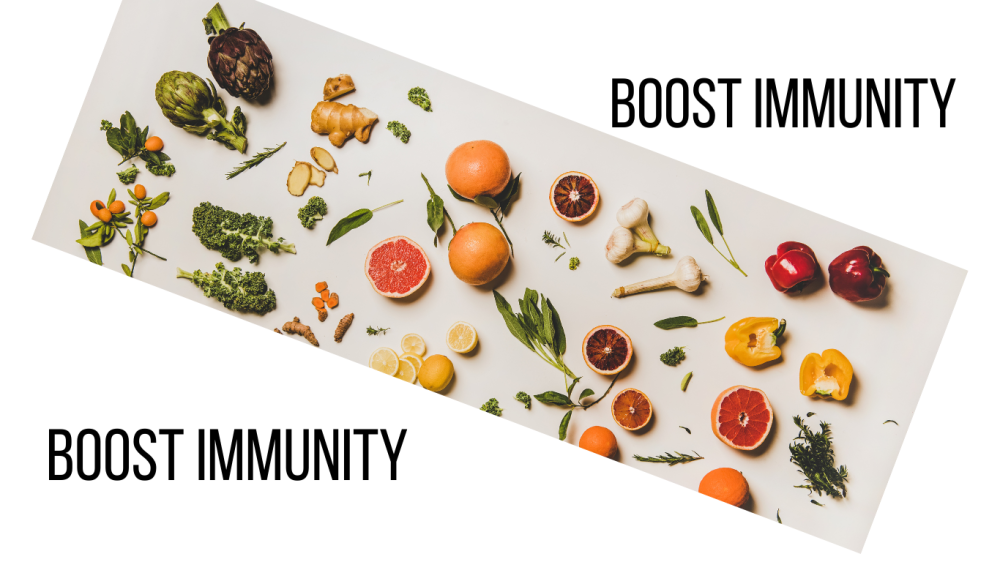I find great value in understanding how my body works, especially when it comes to defending against illnesses. The immune system is our personal guard against infections and diseases, a finely-tuned machine made up of cells, tissues, and organs that work together to protect us.
Imagine the immune system as your body’s security team. It operates around the clock to recognize and neutralize threats like bacteria, viruses, and parasites. But there’s a catch: the strength of this team depends largely on how well I support it through my lifestyle choices.
It’s vital for us to offer continuous support to our immune system. Think of it as keeping your security team well-equipped and alert. Without proper support, the immune system may struggle, potentially leading to more frequent illnesses, slower recovery times, and increased susceptibility to more serious conditions.
With this in mind, I turn my focus to the practical ways we can nourish our immune systems. The right choices can bolster this intricate network and its defenses.
Nourishing the Body: Diet and Immunity
We’ve established that immune health is foundational for fending off diseases. Now, I’ll guide you through the influence of diet on your immune system. Your diet is like a toolkit; the better the quality of your tools, the more effectively you can tackle any job—in this case, keeping sickness at bay.
Superfoods have been a buzzword, but for good reason. Foods rich in vitamins, like citrus fruits, and leafy greens like spinach and kale are not just trendy—they’re packed with immune-boosting vitamins C and E. Don’t forget about nuts and seeds, which are excellent sources of vitamin E, an antioxidant that helps maintain your body’s natural defense systems.
Speaking of defenses, certain minerals play a starring role. Zinc, found in beans and seeds, supports the immune system by helping create and activate white blood cells. Selenium, present in seafood and poultry, is also a supporter of immune response and wards off oxidative stress.
A balanced diet optimizes your immune system’s capabilities. This means eating a variety of fruits, vegetables, whole grains, lean proteins, and healthy fats. It also means avoiding an excess of sugar, which can suppress your immune system, making you more susceptible to infections.
Don’t overlook fermented foods and probiotics. These are your gut health champions, and since much of your immune system resides in your gut, maintaining a healthy gut flora is paramount. Foods such as yogurt, sauerkraut, and kombucha are delicious options that can help strengthen your internal defenses.
Sometimes, despite our best efforts in dieting, we fall prey to common colds or other illnesses. It’s a helpful reminder that while diet is a critical piece, it’s part of a larger puzzle of lifestyle choices and habits that contribute to overall immune health. Let’s consider how your daily activities, habits, and stress levels play a role in immunity in the next section.
The Impact of Lifestyle on Immune Health
Your lifestyle choices play a CRUCIAL role in the health of your immune system. An active routine, balanced stress levels, adequate sleep, and steering clear of detrimental habits can collectively form a bulwark against infections.
Engaging in regular physical activity is one of the most EFFECTIVE strategies for bolstering immune health. Exercise promotes good circulation, making it easier for immune cells to travel throughout the body. It doesn’t mean you need to run marathons; even daily brisk walking can be beneficial.
Then there’s stress, a known immune system saboteur. Chronic stress exposes your body to a steady stream of stress hormones that suppress immunity. Managing stress through mindfulness, yoga, or even simple breathing exercises can help keep your immune system in fighting shape.
Let’s not forget about sleep. That’s your body’s chance to repair and recharge. Seven to eight hours of quality sleep each night can strengthen your immune defenses. Consider setting a regular sleep schedule and creating a restful environment to promote better sleep.
Lastly, certain habits have the potential to undermine your immune system. Smoking, excessive alcohol consumption, and a sedentary lifestyle can all weaken your immune defenses. Making the choice to avoid or reduce these habits is a step toward healthier immunity.
Harnessing Nature’s Bounty: Herbal and Natural Supplements
With a firm understanding of how diet and lifestyle influence immune strength, I turn now to the powerful aid that lies in nature’s pantry: herbal and natural supplements. History and science have shown that certain herbs can support and enhance immune function. For instance, echinacea and elderberry are well-regarded for their potential to ward off colds.
Equally crucial is recognizing the role of supplements like vitamin C, vitamin D, zinc, and selenium—these have all been linked to improved immune responses. Antioxidants are another ally against infections, as they combat free radicals that can harm cells. Natural sources like berries, nuts, and green tea are abundant in antioxidants and easy to incorporate into your diet.
Before introducing any supplement, it’s essential to do your research and perhaps discuss with a healthcare provider, particularly if you have underlying health conditions or are taking other medications. Remember, while supplements can complement your immunity, they are not substitutes for a healthy lifestyle. Consistency in your overall approach is the cornerstone of a robust defense system against illness.



Recent Comments